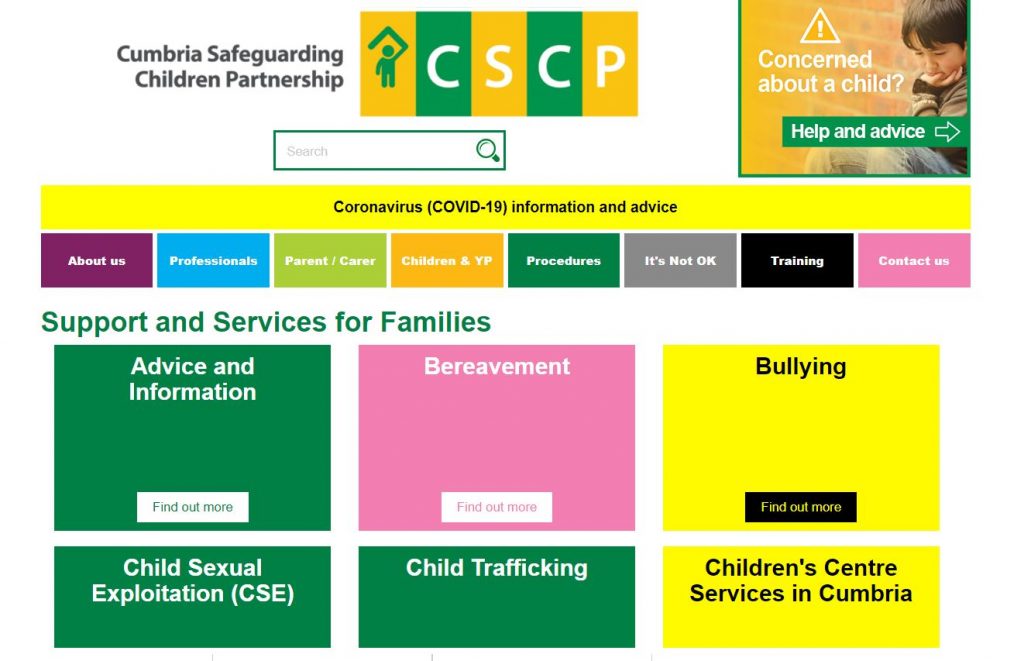We recognise that raising children these days is particularly challenging and there seems to be very little guidance out there. We’d like that to change.
Please see below a combination of videos, articles, links and suggestions that we feel may help with being a parent or carer in 2022/23.

There is no doubt about it, being a parent to a millenial/Gen Z has its challenges. These young people are growing and developing in a world that is fast paced and dominated by the online world.
They have lived through economic recessions, frequent changes to educational syllabus’ and are more at risk of child exploitation and poor mental health, not to mention the environmental crisis. It’s tough.
There is a crucial transition from secondary school to college education; more autonomy, no uniform and less direction from others. Some young people really benefit from structure and being directed to, however others embrace the chance to have more control over their life.
There are lots of useful resources and blogs about what it means to be a parent in today’s world:
Parental monitoring, what is appropriate?
Having difficult conversations with your child
Young Minds – Support for Parents
The Parent’s lounge Parent helpline: 0808 802 5544
If your young person is struggling with their mental health, the best advice is to listen.
It can be really scary to see your child suffer no matter what age, and it may leave you feeling powerless, worried, afraid etc.
As a caregiver there is an expectation that you will coach and guide them through the tough times using helpful language.
Many young people become frustrated with their caregivers when their mental health is poor. This can often be as a result of learning that ‘parents can solve everything’. However, in a classic example, when they cut their leg after falling from a tree, the parent did not magic away the hurt, they soothed the pain with comfort and first aid until it healed naturally. The parent did not solve the problem, they helped them through the pain. The same can be expected of supporting mental health.
A parent should:
– seek the right help services (e.g. CAMHS, counselling etc) and persist if services don’t provide support.
– listen to your child
– encourage them to access support, no child wants to sit in a room and talk to strangers about their inner most fears and yet we expect them to? Support them to understand why this might help. Provide the comfort and say helpful positive things.
If you seek the help and support for them and listen compassionately to what they tell you, you have done your job.
Encouraging your child to recognise their own emotions and ask for help when they need it is also very important.
It is also worth considering that a parent’s mental health, outlook on life and actions, play an important role in the likelihood of mental health recovery and the development of healthy coping strategies. Cathy Betoin, a local Clinical Psychologist, offers family support locally in Kendal. She takes referrals directly from college and charges a subsidised rate. Call 07515062617 for more info or to be referred.
For more support:
Self-harm behaviours or Self-harm recovery resources
Parenting a child with SEND needs is often referred to as ‘super-parenting’. The demands, the sacrifices and the emotional distress involved are all very real challenges.
It is important to self-care and find ways to manage the associated stress with this type of parenting. It is ok to need a break and it is ok to ask for help. There are support groups on social media, such as on facebook: Furness Parents and Carers Disability Forum and North Lancashire Directions Group.
The learning services team are proactive in supporting families and hold person-centred EHCP reviews. They work closely with authorities to ensure the needs of the young person are met.
We also hold Early Help meetings, often co-ordinated by college, to make sure that every agency involved are accountable for their assigned actions. This can help reduce pressure on parents.
Triple A – Autism Charity in Cumbria
There is a Cumbria Virtual Fair on preparation for Adulthood in October 2020
A child is defined as a young carer if they have to carry out duties to care; either emotionally or physically, for a parent, grandparent or sibling.
Research suggests that this extra demand of caring can be a strain on young people’s mental and physical health at times. Such as feeling extra tired, forgetting important information, difficulty with friendships and stress.
South Lakes Young Carers are a fantastic organisation who can help support the whole family.
We can also help by creating a support network with other organisations either voluntary or statutory. This is called Early Help.
A teen’s phone is like a fifth limb in today’s society. There are very few moments where a teen doesn’t have a source of technology to hand.
If you are concerned about your teen’s vulnerabilities online, please check out:
NSPCC – Online support for parents
Sexting and sending nudes is happening a lot more whether parents agree or are in the know or not. It is illegal to take, own or send a nude or illicit photo of a child under the age of 18. Check out the advice below:
Teens and young adults are more likely to start a relationship online than in person. A really useful app to download is the ZIPIT app. There are tips on safe flirting and lots of handy GIFS to download should the chat turn inappropriate.
If you are concerned about your child’s internet use and online vulnerabilities please talk to:
Kendal College Safeguarding team: 07515062617
Police: call 101 for non emergencies
Explaining the death of a loved one can be difficult and emotionally draining. Please check here for support from Child Bereavement UK
The death of a child is life changing and can evoke severe emotional distress, there is support from:
The Coronavirus pandemic has shocked the world and brought about a huge change in the way we live our lives.
This drastic change was sudden and unexpected. For most young people they had been told through most of their lives how important their GCSE exams were, only to end up not sitting the final exams. There is hope that this may encourage learners to try their best throughout their course and not rely too heavily on the end exams, “why do tomorrow what you can do today” logic.
In terms of the role of parents, young people may benefit from discussions around unpredictability and how we must prepare for uncertainty.
“it is not the survival of the fittest…intelligence is measured by those who are most adaptable to change” – Charles Darwin
Nobody feels comfortable when home is a war zone, constant arguments, disagreements and hurt feelings.
There is support out there, if you are committed to making changes.
Strengthening skills such as communication and empathy will go a long way to improve family relations.
If you are ready to talk and everyone is prepared to address the difficulties, speak to your GP about Family Therapies on offer.
Some practical tips you can try:
Save important discussions for ‘neutral ground’ – saving serious talks for outside the home, means home can remain a calm retreat. Talking side by side is far less confrontational than face to face. If you are trying to get ideas or opinions across consider opportunities away from home and on neutral ground such as in the car on a drive, out shopping or on a walk.
Respect their privacy – most parents are tempted to read their child’s phone to find out what is going on and in extreme cases this may keep them safe. However, checking a phone without the child’s consent will sever trust and respect, possibly resulting in more undesirable behaviours. If you suspect that there is something wrong discuss with your child, calmly, (see above) about your concerns, state that you have their best interests at heart. Also emphasise that they don’t have to tell you, but they should tell someone if they are worried (e.g. grandparent, teacher, police or sibling).
If you can’t relate, don’t pretend to! – So many parents say “well this worked for me…” which may be helpful sometimes but only if your child asks for it. The social world that today’s teens are growing up in is far from the pre-internet days. Social relationships are different, it’s far harder to ‘just ignore’ bullying or to see constant online attacks as ‘character building’. If you havn’t experienced it, don’t pretend to know how it feels. It is far more helpful for your child to just listen without distraction and seek help from professionals when you feel out of your depth.
If you would like to discuss any concerns or are interested in starting an Early Help Assessment, please speak to the safeguarding team 07515062617
There are lots of useful resources out there to support your child, should they want to move out soon. The Piggy Bank guide was designed by Kendal College students:
Parents across cultures struggle with this transition, that their child is now old enough to live independently that your house might be emptier without them? It may also affect your relationship with your partner and the way that family life works.
Advice when your child leaves home
You may notice that relations at home are tense and feel that the only option is for your child to move out. However, sometimes just a break apart for a short while can help both parent and child. Sometimes time at Grandparents or relatives can help? If this isn’t an option, Nightstop can support young people whose family relationships would benefit from 1 or 2 nights away from home.
Sometimes it can be frightening and unnerving to see your child growing up and becoming more involved in relationships. You may see a change in behaviours, more time in their room, more time out with their friends/partner.
If you spot any of the following ‘red flags’ it may require some intervention or support for your young person. (See difficult conversations above).
-becoming isolated, no time with family or friends
-controlling behaviours, told what to wear, how to wear their hair, monitoring social media accounts, always needing to know where they are.
-control of their money either physically or being persuaded to spend it on items they approve.
-feeling guilty for going to college
-persistent changes to mood or behaviour, frustrated and annoyed etc.
-talked down to, bullying either online or at home.
See NSPCC guidance here for when you notice the above
Unfortunately, over lockdown, the prevalence of Domestic Abuse increased. It’s more important than ever to support your young person to treat their partner appropriately and when to walk away and end a relationship for self protection.
Support for ending a relationship.
See our sex and relationships page for more info.
There are some helpful resources on the Cumbria Safeguarding website around supporting families. Click the link below
Childcare in Cumbria
Cumbria County Council provide info on local childcare options
Young parents in education?
If you are under 20 and wanting to study, you could get financial support for childcare under the government's Care to Learn scheme.
Family Action
Local support in Cumbria for families Call: 0808 802 6666 Text: 07537 404 282 There is also a live chat on their website.

